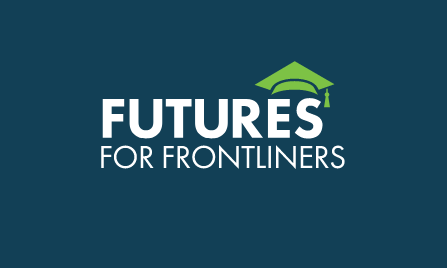If you wondered whether Gov. Whitmer’s Futures for Frontliners scholarship program would draw much interest from the community of essential workers in Michigan, you might be astounded at the numbers of your fellow Michigan residents who have already applied for the free tuition offer, including more than 2,300 in the Tri-County area alone.
As a matter of fact, through that scholarship program, more than 85,000 of Michigan’s essential workers have taken a step toward learning new skills by applying for free tuition to attend community college on their path to high-demand, higher-wage careers. Both Lake Michigan College and Southwestern Michigan College in our area are participating in the free tuition offer.
Included in that number are 1,305 workers from Berrien County, 249 from Cass, 768 from Van Buren, and 889 from Allegan Counties thus far.
Futures for Frontliners, a critical initiative to thank essential workers and help Michigan meet the Sixty by 30 goal, provides increased opportunity for essential workers to earn a postsecondary credential, even if they need to first pursue high school completion, on their way to opportunities for better jobs and bigger paychecks.
Kerry Ebersole, Director of Sixty by 30 says, “Futures for Frontliners has offered the opportunity for Michiganders, who have put themselves in harm’s way early in the pandemic, to pursue their dreams,” and adds, “This tuition-free path to continue educational attainment and training in high-demand areas not only offers increased wages for individuals, but also arms our businesses with the highly trained workforce they need to be competitive in today’s economy.”
To further exemplify how initiatives like Futures for Frontliners increase opportunity for Michiganders, the Michigan Dept. of Labor and Economic Opportunity (LEO) asked essential workers to share what free tuition means to them. Below are just a few examples of real stories from Michiganders who are eager to advance their career for a brighter future for themselves and their families:
Erin Smoot, Petoskey
“The pandemic has been especially challenging, postponing any post-secondary education I planned,” says Smoot, who because of her partner’s Parkinson diagnosis is the primary breadwinner. “I have always craved a higher purpose and there has been a restlessness and aimless lack of purpose lately which the pandemic has made more acute. Free tuition would grant me autonomy from money, which weighs so heavily on the adult student’s mind.”
Kanisha Sanders, Wyoming
“My career goals are to become a Licensed Practicing Nurse then transition into becoming a registered nurse,” says Sanders, a single mother of three who currently works as a certified nursing assistant. “Free tuition would help me out tremendously and give me the chance have a better life for my children and to not live month-to-month. To be able to help people during this pandemic would mean the world to me.”
Kristy Spakowski, Saginaw
“Free tuition means more than any financial gain,” says Spakowski, a single mother of four who plans to return to school for nursing. “It means that I can show my children that at 45 years old, it’s never too late to follow your heart. It means that I followed my dreams even when I didn’t think I could and still tried to make the world a better place by being a good nurse.”
Nathaniel Hawkins, Detroit
“Free tuition means the world to me,” says Hawkins, who is seeking a degree in criminal justice. “It would be a great opportunity to further my educational goals and to obtain a job in my area of study. Paying tuition can be hard when you do not have the financial means.”
Emily Benson, Southgate
“Free tuition would give me the opportunity to finish my degree and give my daughter a better life,” says Benson, a single mother who has been unable to complete school due to financial hardship. “I would be setting an example that no matter what, it’s possible to achieve your goals.”
Several other stories like these can be found on the Futures for Frontliners website, and frontline workers can submit their stories for a chance to be featured on the website and social media.
Futures for Frontliners is one of the state’s Sixty by 30 efforts aimed at closing the skills gap to address talent shortages, increase opportunity and make Michigan more competitive for inclusive economic growth. Increasingly, the best jobs require more than a high school diploma, and Futures for Frontliners creates greater access to education and a more equitable economy for all Michiganders. The program, inspired by the GI Bill which provided college degree to those serving their country in WWII, is a $24-Million investment funded by Governor’s Education Emergency Relief (GEER) Fund – part of the CARES Act, which assists businesses and families from the impacts of COVID-19.
To take advantage of the Futures for Frontliners program, essential workers are encouraged to apply by December 31st, and learn more about the program at http://www.Michigan.gov/Frontliners.
You can view the list of Futures for Frontliners applicants by county at this link:






